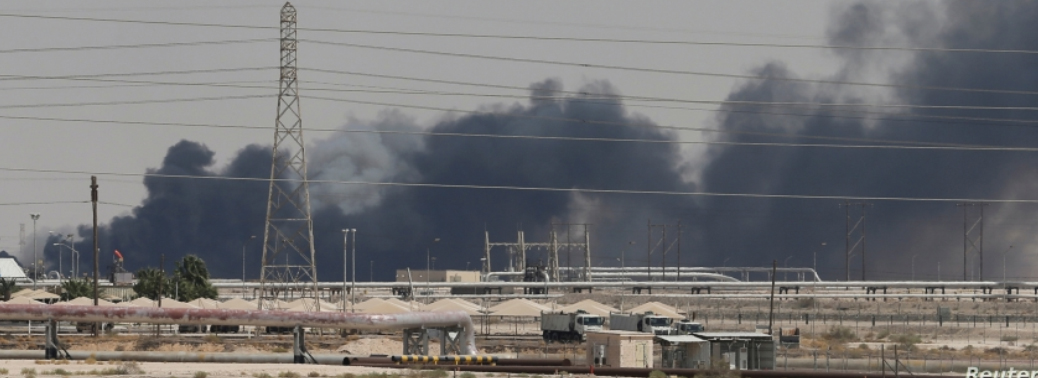IMPACT OF ATTACK ON SAUDI ARABIA’S OIL FACILITY
18, Sep 2019

Prelims level : International Relations, Economics
Mains level : GS-II- Effect of policies and politics of developed and developing countries on India’s interests, Indian diaspora.
Why in News?
- Last week the Houthis, a rebel Shia group of Yemen that is backed by Iran, bombed the Abqaiq plant as well as the Khurais oil field in Saudi Arabia.
- The attack, executed by drones is the largest-ever disruption in crude oil production in Saudi Arabia, which supplies 10 per cent of global world supply and is the world’s largest crude oil exporter.
Global Impacts:
- Saudi Aramco, the state-owned oil companysuspended the production of almost 6 million barrels per day (about 6 per cent of global oil supply) and also restricted the use of 2 mbd of spare capacity.
- This is the largest-ever disruption in crude oil production and therefore oil prices across the world are expected to rise.
Impacts on India:
- India imports 80 per cent of the oil it consumes, which means there are multiple ways in which the country will be impacted by this disruption.
- The first issue is supply. India is already trying to make up for the loss of supply from Iran after US-imposed sanctions.
- After Iraq, Saudi Arabia is India’s second-largest supplier of crude oil — it accounts for almost 17 per cent of the country’s imports.
- Although Saudi Arabia has assured that there will be no loss of supply, if the process of restoration takes more time than anticipated, India would have to look for alternatives. This may not be easy since the global supply has been fairly volatile because of disruptions in some of the other big suppliers such as Venezuela, Libya and Nigeria.
- India is expected to import 1.6 billion barrels of crude oil in the current financial year. So an increase in oil prices by just one dollar essentially means an increase of $1.6 billion in the import bill. That’s an additional Rs 11,500 crore at the current exchange rate.
- But supply constraints and rising oil prices would mean that the rupee will weaken further against the dollar — that’s because, as the dollar prices of crude oil rise, India would need to buy more dollars for the same amount of oil, thus depreciating the value of the rupee vis-a-vis the dollar.
- Rising oil prices will worsen the Indian government’s fiscal balance.
- higher crude oil prices would also lead to higher domestic oil prices, which, in turn, will further depress the demand for all things, especially those that use oil as the primary inputsay, cars.
- This dip in consumption demand, which is already under strain as the recent growth slowdown has shown, would likely mean lower economic activity and consequently lower revenues for the government.






